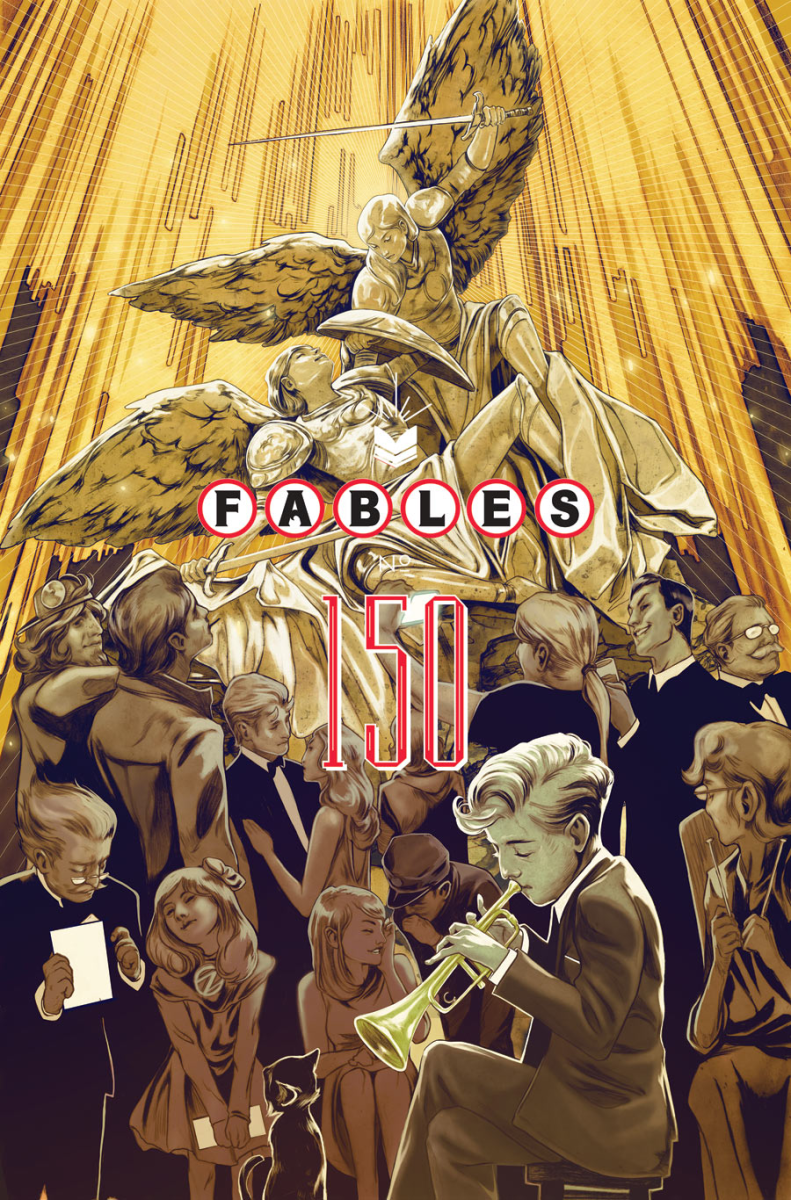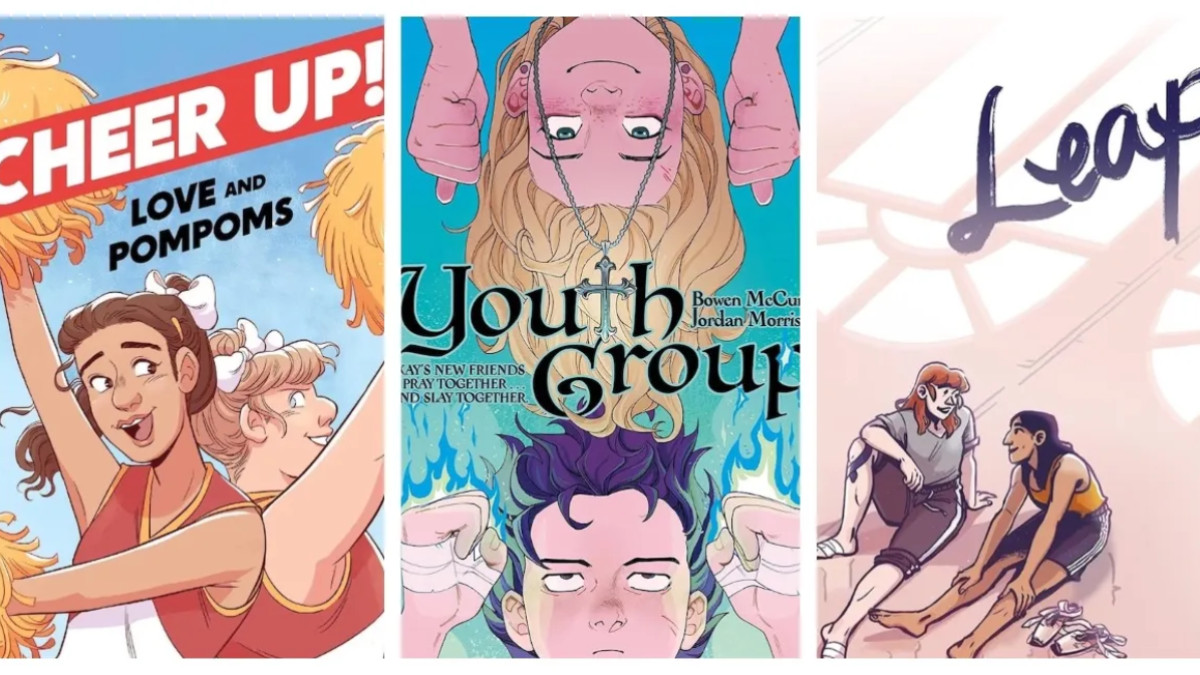At this year’s C2E2, inimitable Fables creator Bill Willingham graciously took the time to talk to The Mary Sue about the power of folklore, the unique struggles of being a creator in the digital age, and how it feels to be bringing Fables to an end after 13 years.
Carolyn Cox (TMS): What does it mean to you to be saying farewell to Fables soon?
Bill Willingham: It means I’m going to sleep in the next day, and catch up on some TV, and even play a video game or two before I get my lazy ass back to work. The actual thing is it’s kind of an odd way, how the end of Fables came about. We were considering the next story arc and I’d become increasingly anxious about not marking time. Every arc of Fables I wanted if possible to be the most important, compelling, life changing arc there is. A lot of the reviews of late have been along the lines of “oh, it looks like Fables might be getting good again,” which is a dagger to the heart. My relationship with reviewers is I want vigorous engagement. Love is preferred, hate is acceptable, but “meh” is death. Tell all the big stuff first; in journalism it’s “don’t bury the lead.”
TMS: So you and Mark Buckingham collaborated a fair amount in terms of story direction.
Willingham: I told Mark right away that I would welcome ideas, and I think he set that conversation up because he started adding visual elements here and there that were ideas in visual form, and I was delighted by them! I was trying to communicate the idea of what I wanted to do with an artist, so I decided to rip off the Hippocratic Oath, the idea that in all of medicine there is this one overriding Oath that is ‘first, do no harm.’ You know, you don’t just try things on whims, your requirement is to serve the patient only, not your own sense of exploration. I thought ‘is there an equivalent for that?’ And because of the rhyme of it, I decided to call it the Oath of Toth, Alex Toth. The Oath of Toth is “first, tell the story.” So every page I get in, that analytical part of me says ‘did he tell the story,’ and with Mark it’s always wonderful. And then there’s that second look-through to find all the crap he put in there that is just the droppings–the Mark Buckingham droppings–of a guy taking delight in his work. I started realizing ‘this guy is full of ideas!’ so I said ‘pitch ideas and all that.’ So yeah, he started contributing ideas early and often, and some of the best ones came from him.
TMS: I’m always curious why certain nursery rhymes or certain fairytales–stuff that isn’t mythology–
Willingham: Well it’s folklore, and folklore is mythology told by people who stopped being impressed with you. Mythology is “oh the Gods are this and that and mysterious and exciting,” and folklore is “well I’m going to tell you the tale of the Gods, but I’ve been their housekeepers for 600 years, and I know how he used to poop his diapeys. I am not impressed.” There’s a sense of wonder, there’s a sense of justice and absurdity, but not a sense of removal, you’re right in there. This is a story that doesn’t happen to important people far away, it happened to me or my aunt. So I like that, I like the immediacy.
When I was putting Fables together, I like this idea of a hidden community, and it was either going to be mythology characters or fairy tale characters, I liked both. The origin of my love for fairytales was when I discovered that they’re folklore. You know as a kid, fairytales, I liked them but I was not in love with or that impressed by them, it was just ‘these are the things that are available.’ But then, there’s this show Bullwinkle, and within this show there’s a cartoon called “Fractured Fairytales” wherein they take fairy tales and tell them in funny, mocking ways. As a kid I assumed there were rules for everything. So I’m watching this thing about the big bad wolf or something, and I knew this was not how it went, and I expressed my outrage. My mother was there and I said “how can they do this? Aren’t they going to get in trouble? This is not how it happens!” And without knowing the term public domain, she explained the whole thing. “These are folklore, they belong to the folk.”
Folklore–the thing I love about it–is it belongs to everyone, but not in a community. It’s not like we get together and decide what we’re going to do with our ownership of this, we individually own 100% of it. Every single human being who exists. We’re all born rich with this wonderful treasure.
TMS: I know in the past you’ve talked about how you’ve received criticism for stuff that people have perceived as political in the books, and I feel like now with the advent of the Internet and people being able to participate more easily in fandoms online, that criticism is a lot easier to share about comics in general. I was wondering how you feel about that discourse being a much easier thing to share, and much more quickly now.
Willingham: There’s an old saying I used to love, “a cat can look at a king.” Which is, there’s no person that’s so great that the great unwashed masses are physically unable to see them, the peasant and the king still share some commonality. And now with the Internet, that is the case. What we’re trying to do is figure out the rules of life now, because the Internet has changed everything. So we’ve come up with notions and spread wacky ideas. The notion that ‘I can dress this way but you shouldn’t be looking at me,’ in my mind that’s nonsense because a cat can look at a king. Anyone can look at anyone. And yet that’s a thing we’re wrestling with now, but we’re not really wrestling with that, we’re wrestling with ‘it’s a whole new world, and we’ve lost manners along the way and we’re beginning to perceive that we need them.’ But to call them manners and etiquette and things like that is kind of old fogey, so we’re coming up with new terms.
The Internet provides all that. You can interact with the people that make the stuff that’s important to you! And that is, of course, both a blessing and a curse. So criticism can flow much more freely, and it does not have to go through gatekeepers. The best and the most erudite and all that are going to get noticed in the long run, but I don’t mind that the gatekeepers don’t get to decide that. But it’s annoying, because of course anyone can call you a shit, and some do. When this whole brouhaha of the new manners shakes out, when we start to settle on things, one of the things I hope we settle on is that those who will hurl their crap under their real name will have more authority than those who do it anonymously. Sign your own name to your crap. Stand up for it. When you present yourself to the entire world as a non-person, you have no right to expect to be treated as anything other than a non-person.
So yes, I get a lot of criticism, that’s fine. I bristle at the criticism that starts with a conclusion, ‘you are a Nazi racist misogynist homophobe,’ and that’s their opening line. All of those are words to stop a conversation, those are shouting-down, ‘you don’t even deserve to be heard’ words. When you lead off with that, you don’t get to have a conversation with me. I will often hear said–the Gamergate controversy right now is indicative of this–is the arguments that are on that level, and start off on that level, always stay on that level. Because you have just filtered out everyone else [that] is going to argue reasonably, and [now] it’s only the verbal bomb throwers. I’ve got little patience for that, and yet it’s better than mechanisms to silence them, as well. I’m just hoping that the cream rises to the top, that the person who can back up his argument is going to prevail.
If I can blanket criticize the left, it’s with this admonition: politics is in every single book you read. Maybe you respond to mine because it’s unusual, it stands out, it’s not what you believe. A fish does not notice the water in which it swims. Politics is rife in comics, because comics are stories about people who think and believe shit.
TMS: I’m sure you’ve been asked about this at great length, but I feel like I have to ask. Has there been any progress on the Fables movie, are you involved in that process at all?
Willingham: Yes and no, to both questions. I’m going to try and not speak out of school…the Fables movie is still, as far as I understand, a greenlit project. David Heyman, the producer of the Harry Potter movies, is still interested in doing it. But rumor has it that there has been a script produced that was a giant hot mess, so now it’s in someone else’s hands. And I know who, and my confidence is very high. But take everything I say about it with a giant grain of salt, because I am the kid at the end of “didn’t anyone tell him” lane, and often the last to know. I am often reminded that it took 60 years for Lord of the Rings to get made and Tolkien didn’t live to see it…I hope I’m not Tolkien.
TMS: And what can you tell us about the projects you have coming up post-Fables?
Willingham: There are a lot! I don’t plan any of them to be 150-issue epics for awhile, I want shorter things. There are a lot of novels in the works. There are comic projects.
TMS: Would you ever consider screenwriting?
Willingham: You know, my agent wants me to do one. It’s considered a good idea to have a spec script, but that’s in the hopper of Things I Should Get To Someday. And I have a few of what I think are good ideas for a script. Not the screenplay of Fables, because I don’t think I could make decisions about something that’s like my own children. So anyway I’ve got a few ideas, a few notes here and there. But maybe.
This interview has been edited and condensed.
—Please make note of The Mary Sue’s general comment policy.—
Do you follow The Mary Sue on Twitter, Facebook, Tumblr, Pinterest, & Google +?









Published: May 11, 2015 03:47 pm